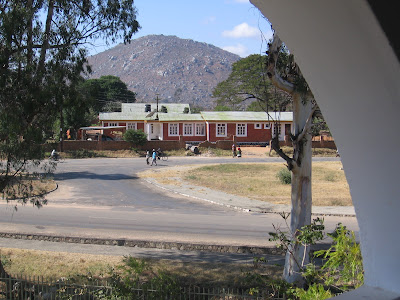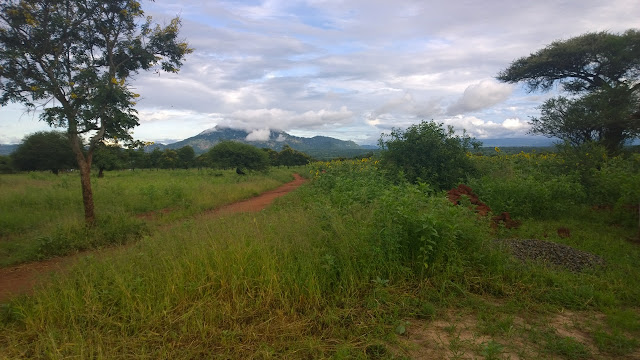Same Town. Different View.
Trading Ocean Views for Mountain`Skylines
Nimefika (I arrived) in the southern highlands of Tanzania and my new home base of Iringa last Thursday. The bus ride in semi-luxury aboard the Scandinavia Express (complete with a snack service around noon of cookies and kool-aid type beverage) was uneventful. After a run-in with a wannabe pick-pocket in Dar es Salaam, I was more than happy to make the move inland. I was picked up at the bus depot by Tom and Beth Hansen, hosts from the Saint Paul Area Synod for the summer, and brought to the synod apartments. Through a stroke of good luck and incredible generosity I have the upstairs apartment to myself, complete with hot water, full kitchen, and gorgeous views of the surrounding hills.
-----------------------------------------
While this is my fourth time stepping foot in Iringa town, in many ways it feels like an entirely new place:
+ Being here solo, as opposed to being in (or in-charge of ) a large group means that I’m able to set my own agenda, move at my own pace, and work slowly through the market and shops of downtown. Except for dinner with the Hansens, my interaction with other wazungu is limited. For the most part, it is me and the city . . . pekee.
+ Traveling overland from Mombasa to Dar to Iringa has helped to set the city and its people in context. Instead of bombing in from the coast after a flight from the states, I’ve been able to slowly transition from the easy going Swahili-lifestyle of the coast to the dynamic urban vibe of Dar to the agricultural and pastoralist setting of the Southern Highlands. They are all Tanzanian and yet their look/behavior/actions/attitudes are all distinct.
Until this summer, while I knew it wasn’t true, in my mind all Tanzanians were either Hehe or Maasai. They all either grew veggies and corn or herded cattle. They wore either Western Pants or Purple and Red Shukas. The slow move from coast to city to country has been helpful as I try to stitch the various pieces of this country together, like patchwork.
+ Then there is language. Eleven months studying Kiswahili has cracked open an entirely new window into life here. Rather than bumble confusedly in English in the market I can now stumble in Kiswahili while trying to buy pilipili hoho (green peppers) for dinner or ndizi (bananas) for a snack. Where conversations would quickly hit a dead end in English and then there would be that moment of horrible-awkwardness, there are now at least a couple more ways to talk before complete communication breakdown. My interactions aren’t confined to those English speakers who’ve been through secondary school or university. I’m able to talk with watoto and wazee, wakulima and wavuvi. New lives, new experiences, and new stories are now open, and for that gift/opportunity I’m grateful.
With New Words, It’s a New World.



Comments